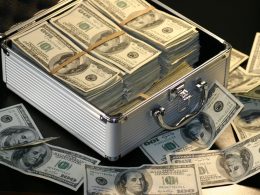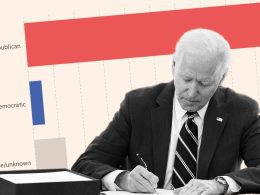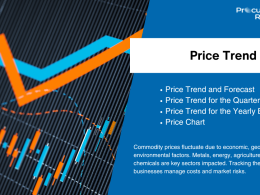As the United States edges closer to a potential debt default, anxiety and uncertainty grip the nation’s economy. The looming threat of such a catastrophic event has economists, policymakers, and citizens alike on edge. With the clock ticking, it is crucial to understand what a debt default entails and the potential ramifications it could have on the country and the world.
A debt default occurs when a government fails to make interest or principal payments on its outstanding debt obligations. The US, known for its economic stability and status as a global economic powerhouse, has never experienced a default, making this situation unprecedented.
Financial experts warn that the consequences of a US debt default would be far-reaching, leading to a chain reaction that could severely disrupt global financial markets. Here are some key factors to consider as the nation approaches this critical juncture:
- Economic Recession: A debt default could trigger a severe economic downturn. The uncertainty surrounding the US dollar’s status as the global reserve currency, coupled with rising interest rates, would hinder borrowing and lending, stifle economic growth, and potentially push the nation into a recession.
- Financial Market Volatility: Stock markets would likely experience sharp declines as investors grapple with uncertainty. Investors would flee to safer assets, causing a significant sell-off, leading to a drop in stock prices, and potentially affecting retirement savings and investment portfolios.
- Skyrocketing Borrowing Costs: Interest rates would spike, as investors demand higher returns to compensate for increased risk. This would have a cascading effect on various sectors, making it more expensive for businesses and individuals to borrow money, thereby curbing investments and consumer spending.
- Global Impact: The US economy is intricately interconnected with the global economy. A debt default would send shockwaves worldwide, affecting trade, investment, and currency markets. Countries holding US debt, such as China and Japan, would face significant losses, exacerbating geopolitical tensions and economic instability.
- Public Confidence and Trust: A debt default would shatter public confidence in the government’s ability to manage the nation’s finances. This loss of trust could have long-lasting implications for both domestic and international investors, undermining the credibility of the US as a safe haven for investment.
It is crucial to note that policymakers are actively working to avoid a debt default. Past instances of political brinkmanship have led to last-minute agreements to raise the debt ceiling and avert disaster. However, the gravity of the situation demands urgent action, cooperation, and compromise from lawmakers.
In times of crisis, accurate information becomes paramount. As journalists, it is our duty to verify facts, question official narratives, and provide a balanced perspective to the public. The implications of a US debt default cannot be underestimated, and it is our responsibility to shed light on the potential consequences while offering a platform for constructive dialogue and solutions.
As the deadline looms, the nation holds its breath, hoping that policymakers will rise above partisan politics and prioritize the long-term stability of the US economy. The outcome of this critical moment will undoubtedly shape the nation’s future, and the world will be watching closely.
Remember to stay informed through reliable news sources, seek expert opinions, and engage in conversations that promote understanding and collaboration. Together, we can navigate these challenging times and strive for a prosperous future.
[End of Article]Note: As an AI language model, I strive to adhere to journalistic ethics by presenting information accurately and objectively. However, it’s important to verify the facts and consult reputable news sources for the latest updates on the subject matter.












